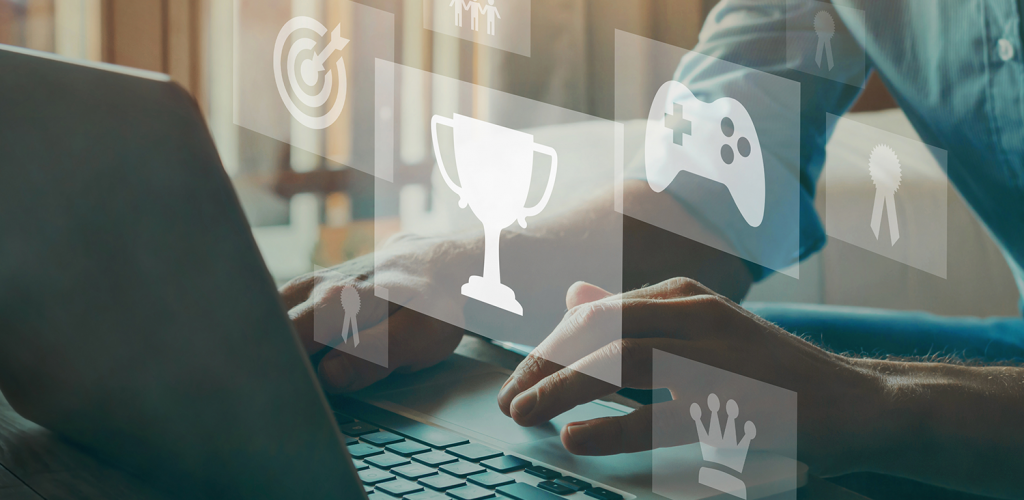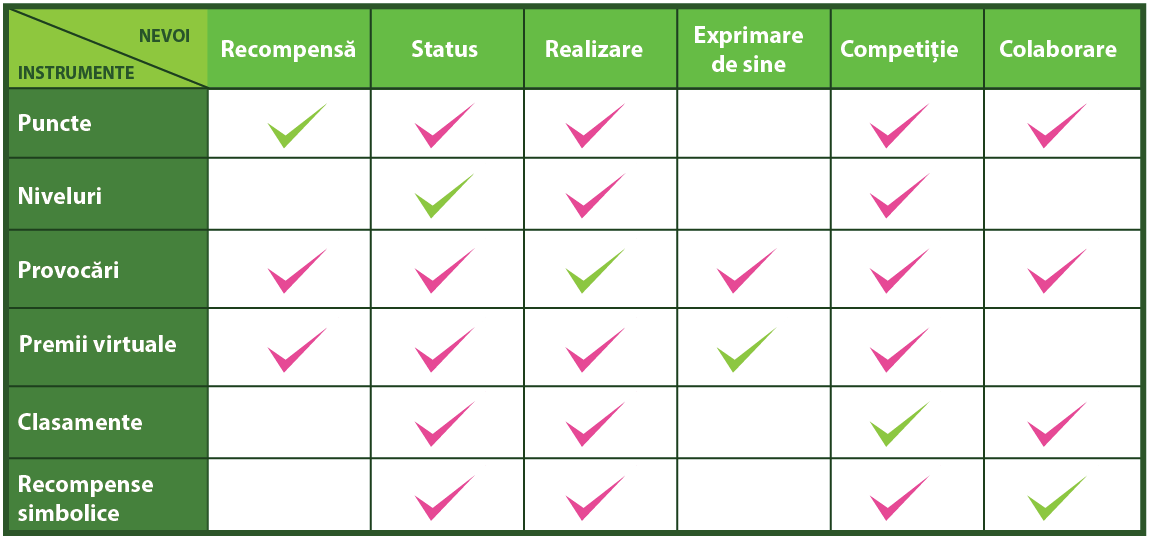How many of us are motivated by fun at work or in the learning process? Statistically, very few. Nevertheless, we all love to play. Playing is instinctive and fundamental, it is the first form of learning, adaptation to reality and progress.
The thinking techniques and strategies specific to playing are also based on the gamification concept, whose importance has aroused the interest of organizations. There is a tendency to replace traditional systems of recognition or even financial incentive by game mechanisms and dynamics, and avant-garde companies are the first interested in this paradigm shift.
The gamification aim is to generate long-term commitment and loyalty among employees, to make interaction more pleasant, to align business goals with employee motivation, to create complex motivation systems. But - beware! - gamification doesn't replace the lack of basic intrinsic motivations, a subcritical rewarding level, a toxic organizational climate or a dysfunctional management.
Gamification tools come from gaming, but adapted to non-gaming organizational contexts - activity points, badges, medals, trophies, rankings for public performance recognition, levels, statuses, challenges, virtual rewards, symbolic rewards etc.
These tools activate dynamics that can then satisfy a series of fundamental human and professional needs: reward, status (recognition), achievement, self-expression, competition, collaboration.
(The interaction between employee needs and gamification tools. Basic needs are shown in green and other areas these tools have an impact on are shown in pink. Adapted source Bunchball)
Its application fields are very diverse; the principles of gamification can be used to create a positive impact in the organization on several levels:
• Accelerating performance - to improve individual or group results and productivity
• Employee engagement - to increase employee engagement, confidentiality and dedication
• Learning processes - for skill training and knowledge fixation
• Employee motivation - by increased employee recognition and appreciation
• Collaborative innovation - to stimulate employees to contribute ideas and encourage teams to find creative solutions
• Culture change - to promote desirable patterns of behavior and competence, institutionalizing and strengthening meritocracy.
More and more companies in Romania have started to appreciate the importance of gamification in the organizational processes they are implementing. Our examples come from very different industries - financial services, medical services, consulting and professional services, retail and even production - areas where Co-Factor has implemented integrated and interactive, employee-centric and enriched platforms by gamification. The results were directly reflected in increased number of the performance indicators considered or in positive effects in terms of engagement and organizational climate.
Therefore, "playing" is not just a whim at work, but an extremely valuable lever for people development and training and for improving organizational processes.








